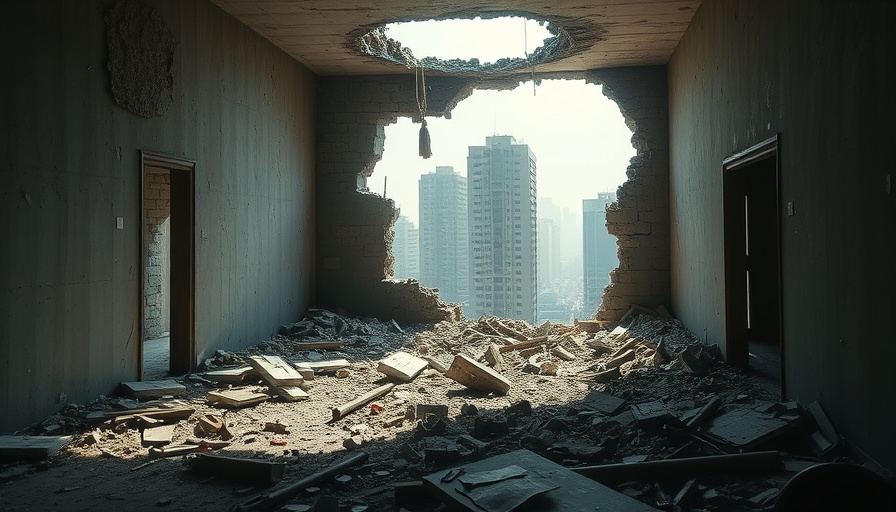
A Swift Exodus: Over 800 Canadians Flee Conflict Zones
In a remarkable response to escalating tensions in the Middle East, more than 800 Canadians, including permanent residents and their families, have made their way out of Iran, Israel, and the West Bank, according to officials at Global Affairs Canada. This mass departure followed significant government efforts to assist those wanting to escape the ongoing violence that has claimed many lives and disrupted countless others.
The Context of the Conflict
The surge of Canadians seeking refuge comes amidst a serious conflict marked by intense missile and drone assaults between Israel and Iran. Reports indicate that after a series of attacks on Iranian nuclear facilities initiated by the U.S., a tenuous ceasefire commenced, although the atmosphere remains charged with uncertainty. Foreign Affairs Minister Anita Anand commented that, despite the ceasefire, "tensions between Israel and Iran remain high,” demonstrating the fragile nature of peace in the region.
Governmental Aid and Safe Passage
Canadian consular officials have been proactive in facilitating the exit of Canadians from the danger zones. Operating with urgency, they have arranged for safe passage to third countries from which evacuees can travel back to Canada. This approach is particularly crucial given the chaotic landscape characterized by ongoing military operations.
Social Polarization Among Iranians in Canada
The conflict is not only impacting those overseas but also creating divisions within the Canadian Iranian community. Many are expressing polarized views regarding the Israel-Iran war, reflecting the complexities of identity and allegiance amid such turbulent circumstances. The Canadian Iranian experience is varied; while some feel a kinship with Iran during its trials, others stand firmly in support of Israel. This dichotomy within communities, as reported, underscores the broader human emotional responses to international crises.
The Broader Implications for Canadians
The urgency of this situation points to the broader implications for Canadians living abroad, confronting geopolitical unrest. For those who possess family ties in the Middle East or those who travel there for business or tourism, news of this ongoing situation raises critical safety questions. These developments necessitate a robust response from the Canadian government and public awareness to support affected individuals throat any future unrest.
Looking Ahead: Future Prospects and Predictions
As the ceasefire holds for the moment, predictions about future stability in the region remain speculative. The ceasefire's endurance will hinge on ongoing U.S. and Iran negotiations and the reactions of global powers involved in the Middle East. Analysts are watching closely, noting that economic sanctions and diplomatic dialogues will play vital roles in either escalating or de-escalating tensions. The hope remains that in the face of adversity, peace efforts find a viable path forward, reducing the risks faced by innocent civilians caught in conflict.
Call for Community and International Support
The current climate requires solidarity and advocacy for the safety of civilians and diplomatic solutions that prioritize peace over conflict. As past events suggest, international crises can have a lasting impact on communities worldwide, necessitating a compassionate response from the global community towards those directly affected.
In light of these developments, it is crucial for Canadians to remain informed about the ongoing situation and offer support where possible, whether through community initiatives, outreach programs, or direct appeals for safe passage for those still in jeopardy.
 Add Row
Add Row  Add
Add 




 Add Row
Add Row  Add
Add 

Write A Comment